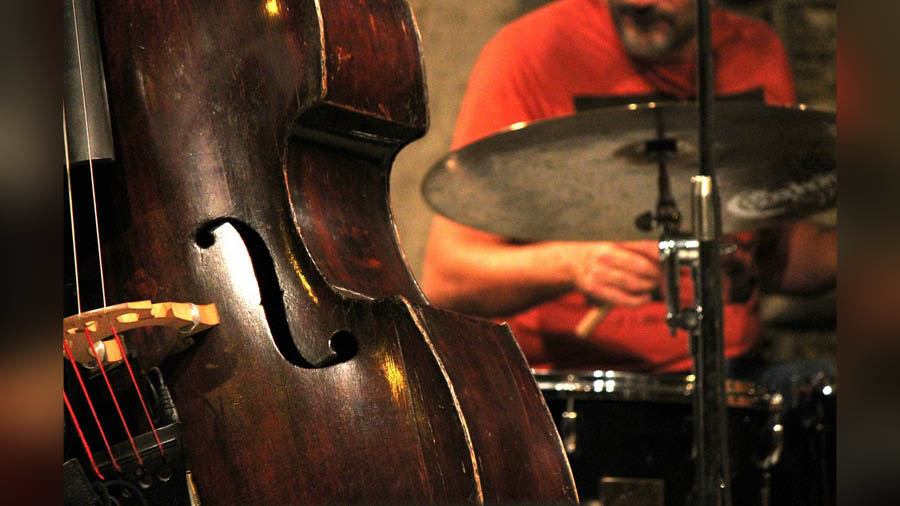“He loves jazz music!” she squeals to her bestie over the telephone, much like Dorothy Boyd in the Tom Cruise-starrer Jerry Maguire, when she tells her sister “I love him!” at the beginning of a dialogue I will remember forever. If you did not know already, the rest of it goes thus: “I love him for the man he wants to be. And I love him for the man he almost is.”
The year is 2008 and the girl in question, Kritika, a Londoner by birth, has just returned to her chic suburban Bombay flat on Nepean Sea Road to take care of her father’s floundering supermarket business. Her hopeless love life has been the result of being perennially swamped by frogs. Here she silently alludes to the wannabe losers she had the misfortune of dating, none of whom quite “got me”.
Finding love (and pizza) by the bay

Love is a delicate balance between seeking what he have and what we lack Pixabay
One day while traipsing along Marine Drive, she chances upon Aftab, a charming young gentleman who goes on to sweep her off her feet and make her feel like Cinderella. Except, she has not gone out dancing. It is their first date at Not Just Jazz By the Bay, a popular jazz club in south Mumbai.
Unbeknownst to Kritika, Aftab goes there for the Bombay Masala Pizza. Unbeknownst to Aftab, the music does things to Kritika in a way he will never quite be able to match up to in bed. It is a union of opposites. She is an artist, he is a day trader. Kritika eventually trades her solitary existence for a lifetime with Aftab. Never mind her father not getting the Gujju damad he always wanted. She found love by the bay. And that was enough for Papa.
Years later, that first date venue is now called Pizza by the Bay. The only thing that reminds one of its glory years is the Bombay Masala Pizza Kritika and Aftab would share with relish. Delicious to this day.
Kritika and Aftab divorced five years after they were married. Whenever Kritika walks by that restaurant, she thinks to herself: “At least we had the pizza in common”.
There is a whole business of propagating “things in common” as a means of cementing relationships. As though you can literally match a person with another like we would match words in textbook exercises. And then there is the other school of thought that insists, “opposites attract”. I think the latter is far more relevant, especially in today’s world. Pardon me, old timers. I do not mean to be derogatory. It is just that humans have become far more exploratory, of late. There are more career choices than ever before and, even in love, people are open to finding their own truths, rather than following the norm. Coming out of closets and live-ins are merely the tip of the iceberg.
If we are only trying to find people who are reflections of ourselves, why not live alone?

The author believes that opposites attract and create more scope for love Pixabay
Take my case, for instance. My wife and I are poles apart. She is street-smart. I am, well, smart.
Jokes aside, she has none of the interests I do, like reading Victorian-age tomes or listening to jazz. Neither do I have any interest in YouTube videos that serve as inspiration for her most spectacular cooking.
But yes, there is still plenty we have in common. Like the things that make us laugh together.
The common focal point of our lives — our teenage son. And then there are people who like the same things to the extent where it gets a tad overbearing. They watch the same TV shows and order the same dishes in restaurants (one by two does make for a thinner bill, though). One fine day they wonder: “Am I living with myself?”. If we are only trying to find people who are reflections of ourselves, why not live alone?
In the end, there are plenty of tangible reasons why Kritika’s marriage with Aftab fell apart. She did not care that he ate Wagyu beef. What bothered her was that one time he insisted on eating it when her staunchly Jain parents were over. In Aftab’s defence, he did it because he did not have the heart to tell Kritika there was nothing left. Not in the fridge, but in his heart. He knew she was looking for the last straw. All he had to do was feed it to her.
There are things known and things unknown and in between are the doors
— Jim Morrison
Sadly, she loved Aftab. But she loved herself more

Kritika knew Aftab never liked jazz, but continued to wish he did Pixabay
We like to believe we have a lot in common with the people we love. That is why Kritika kept going back to Not Just Jazz by The Bay. Even though she knew that her husband did not care about jazz music. Her heart, however, still clung on to the belief that her hubby secretly loved jazz. When lovers’ toothbrushes inhabit the common space of a glass by a washbasin, a lot more is evident than what meets the eye.
Kritika wanted Aftab to be like her. She could not understand his need for going drinking with his buddies every Saturday night (as though the lesser Friday were hers, like a cheap consolation prize). Sadly, she loved Aftab. But she loved herself more.
Not that self-love is not important, but there comes a point in time when you have to let go of the stringent expectations you have from your partner. Sometimes as a compromise. Like an average AC temperature setting, if she prefers it hotter, and he wants it cooler.
I like to believe there is a sweet spot between “things we have in common” and “opposites attract”, where love blossoms. Sometimes we land up there by default. More often than not, we have to work to get there, even if this implies a feat comparable to scaling Everest.
The re-emergence of Not Just Jazz By The Bay in its seemingly lesser avatar, Pizza By The Bay, is a grave reminder of the fact that even if you strip away something from an establishment, like the sound of jazz wafting through its environs, life still goes on. And so it is with the establishment of love. Even if there’s no “Jazz”, there’s still “Pizza”. Not just pizza, mind you, but conversation, laughter and love.
Rohit Trilokekar is a novelist from Mumbai who flirts with the idea of what it means to love. His heart’s compass swerves ever so often towards Kolkata, the city he believes has the most discerning literary audience.


